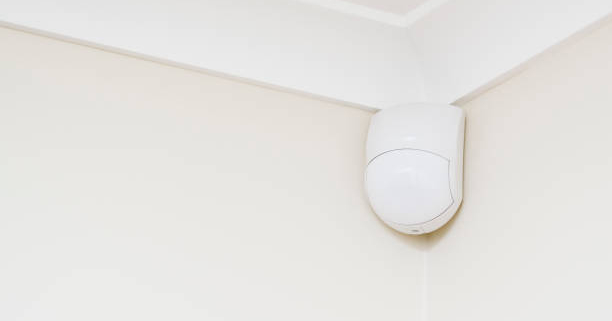How Does A Motion Sensor Work: Best Placement Practices
Outside of the physical structures of your home, motion sensors are often the first line of defense for your security system. But how does a motion sensor work? Basically, motion sensors trigger alarms and direct the home security feed to wherever the alarm was triggered. This is usually based on motion or intrusion (hence the name!)
This is why taking the time to plan out motion sensor placement for your home is so important. If your motion sensors aren’t in locations where they work the most effectively, your entire system may be flawed. Check out these helpful tips for motion sensor placements:
How Does A Motion Sensor Work: The Most Effective Motion Sensor Placements
Motion sensors work to detect movement in an area where there shouldn’t be. When thinking of the best placements for your motion sensors, consider important access points and any potential vulnerabilities in your home or business that an intruder might exploit.
Corner Spaces
Put a motion sensor in the corner of each room, aimed toward the doorway. That way, if the door opens or someone passes through, the sensor will detect the motion and set off the alarm.
Near Valuables
What exactly are you looking to protect with your motion sensors and security system? Place motion sensors directly at your most valuable items. Or, in the case of a small business, consider where you keep or display any important products or business profits. No one will be able to get close to them without you knowing.
Second Floor Bedrooms
Even if you feel as though a burglar couldn’t enter the house through the second floor, it is a good idea to keep a motion sensor near the bedrooms in your home. As a general rule of thumb, all entry points should be accounted for. This way you’ll be alerted if anyone approaches while you’re asleep.
Ceilings
When an intruder enters the home, they may already be looking for motion detectors. A great place they wouldn’t immediately look is the ceiling. Sensors work from any angle, so this is a great way to keep a thief from easily avoiding detectors. And these days, sensors are made to fit discreetly wherever you place them. So, they won’t be an eyesore in your home either.
Within Decorations
A great way to hide motion sensors is by making them part of your household decor. Hide them amongst photos and knickknacks so they aren’t easily spotted by intruders. Plus, they won’t detract from your home’s look and feel!
How Does A Motion Sensor Work: The Least Effective Motion Sensor Placements
Motion sensors are designed to detect motion, which means any kind of motion. Placing your motion sensors in certain areas can not only detract from the functionality of your system, but it can also cause false alarm triggers. Avoid placing motion sensors in the following locations:
Near Windows
This is a bad location for a few reasons. The first is that heat-activated motion sensors can be confused by direct sunlight, which most windows receive a lot of! The second is that the sensor works best when a burglar walks parallel to them rather than straight ahead. Finally, you wouldn’t want a false alarm trigger from every single passerby, or even just an innocent visit from the neighborhood cat!
Near Heat Sources
A heat source could potentially create a false alarm, so it is a good idea to keep motion sensors away from hot air vents and radiators. Any change in infrared heat could trigger the alarm. Plus, extended exposure to high temperatures could potentially damage your equipment as well.
For More Security Tips And Solutions, Stick With Boyd & Associates
Ensure that your security system is working to its full potential by strategically installing the motion sensors that are included with it.
And if you’re looking for more ways to keep yourself and your family safe, check out our home security and automation services at Boyd & Associates. We offer a wide range of home security options to protect you and your family. If you’re ready to discuss our custom solutions, contact us today to learn more about our services and how we can help you prepare for what’s next.
- Gift Guide: Smart Home Upgrades That Actually Matter - December 15, 2025
- Fire Safety in the Kitchen: Thanksgiving Cooking Precautions - November 20, 2025
- Halloween is all fun and games, until safety gets overlooked - October 23, 2025



